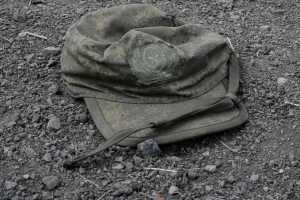
EU blocks more than EUR 200 billion in assets of Russian central bank
The EU has blocked more than EUR 200 billion in assets of Russia's central bank since Moscow launched a full-scale invasion of Ukraine
Bloomberg reported the information.
The outlet notes that this step underscores the importance of discussions on how to use these funds to rebuild Ukraine.
The EU countries reported new data on blocked assets after the 10th package of sanctions, which forced banks to disclose information about the size of their assets.
"The EU is committed to ensure that Russia pays for the damages caused in Ukraine. That’s why the EU is exploring ways of using Russian frozen and immobilized assets for that purpose," said European Commission spokesman Christian Wigand, who confirmed the figures.
The EU has also frozen EUR 24.1 billion of Russian private assets of individuals and legal entities that have been sanctioned. The bloc has sanctioned nearly 1,500 individuals, restricted the export of hundreds of goods and technologies, and targeted many of Moscow's key sources of revenue, but has had difficulty finding and freezing the assets of sanctioned Russian billionaires.
According to Wigand, the Commission is working closely with the Swedish EU presidency to "to move discussions forward” on options for using the frozen assets of the Russian central bank.
The EU is also continuing discussions with its allies "to ensure the necessary coordination at the international level." EU leaders are expected to discuss this at their next meeting in June.
Separately, the EU is considering the power to confiscate the private assets of sanctioned Russians in case of a criminal offense, expanding the list of crimes such as money laundering and corruption to include evasion of EU sanctions.
-
On May 11, the European Commission confirmed that it had developed legally acceptable options for using Russian assets, both private and state-owned, to rebuild Ukraine.
- News














































